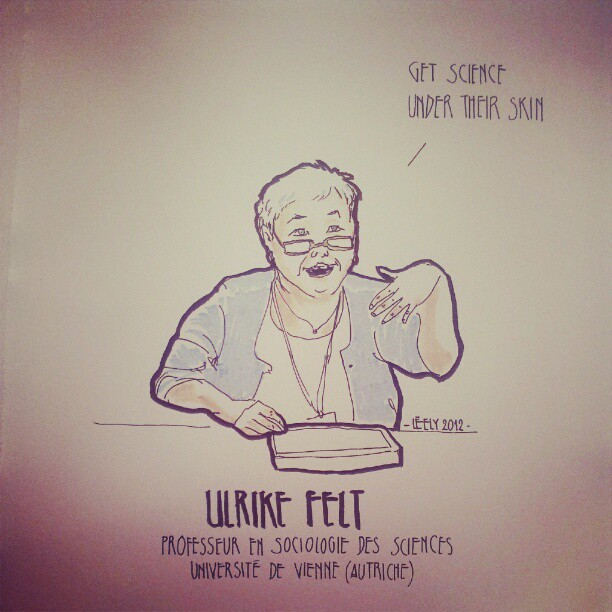February 7, 2013, by Warren Pearce
Ulrike Felt: Science as a ‘Public Good’ in Search of a ‘Good Public’
 With only four days to go to the Making Science Public launch event next Monday, February 11th, we are providing a taster of our keynote speech from Professor Ulrike Felt, Professor and Head of the Department of Social Studies of Science at the University of Vienna.
With only four days to go to the Making Science Public launch event next Monday, February 11th, we are providing a taster of our keynote speech from Professor Ulrike Felt, Professor and Head of the Department of Social Studies of Science at the University of Vienna.
We have fewer than ten places left for the event. If you would like to register, please get in touch here as soon as possible.
Debates concerning the need to better integrate science and society have now been around for several decades. We find ample evidence for this in policy debates, both on the EU level and in member states, and observe a diversification and proliferation of activities addressing different kinds of publics – women and children being at the centre. Increasing public representation of science and the accompanying storytelling seem to have become the “gold standard” for institutions of research and higher education. Researchers are called to engage more actively and think ever more carefully about how “their science” is to be performed to touch the respective public. A dense promissory discourse positions participation and engagement exercises as ‘the remedy’ that can and will ‘repair’ science-society relations, which are perceived as damaged. So all should be good – science and society relations are taken care of.
This intensification of communication and engagement comes at a time when innovation is being promoted more vigorously than ever, as a way out of crisis and as a foundation for future prosperity. Our future – whoever is embraced by the notion of ‘our’ – thus gets imagined as one which can be shaped and controlled through technoscience, which can be colonized and tamed. Making the right choices in supporting research and innovation has thus become central. This is clearly expressed in policy statements such as Horizon 2020, but also in the proliferation of policy exercises aiming at imagining and thus practicing our future. Variations on the idea of science/research/knowledge as ‘public good’ or ‘common good’ run through all these discourses as ‘public goods’. It carries powerful value connotations, yet without explicitly acknowledging them and thus merits closer scrutiny.
This presentation will thus address the often unacknowledged relationship between imagining science as a ‘public good’ and central agent in making a specific future happen on the one hand, and on the other, how the corresponding ‘good public’ (i.e. the public that supports, admires and embraces these technoscientific futures) gets imagined and put into practice. It will argue that the idea of a ‘public good’ is continuously co-produced with the one of a ‘good public’, ready to take on a defined set of roles and functions of being technoscientific citizens. Developing the concept of a ‘disciplined democracy’, the presentation will reflect on a series of ‘theatres of persuasion’, i.e. settings where science-society issues get addressed, and use them as laboratories where we can test our ideas of what it might mean ‘to make science public’.

[…] The official launch event for the programme in February 2013 (with a post summarizing the key note speech by Ulrike Felt and two posts by Bev and Alex on the debate entitled ‘The privatisation of science is not in […]